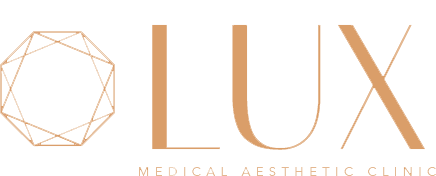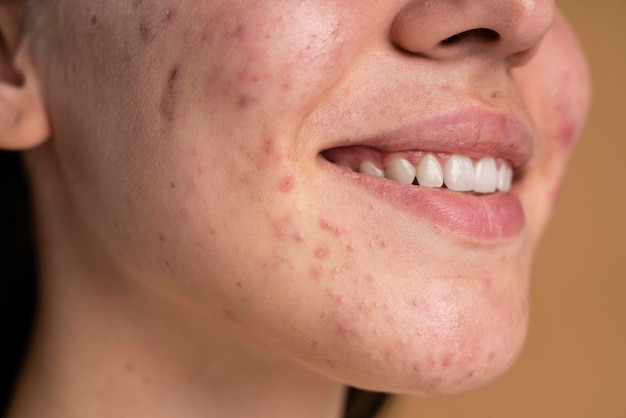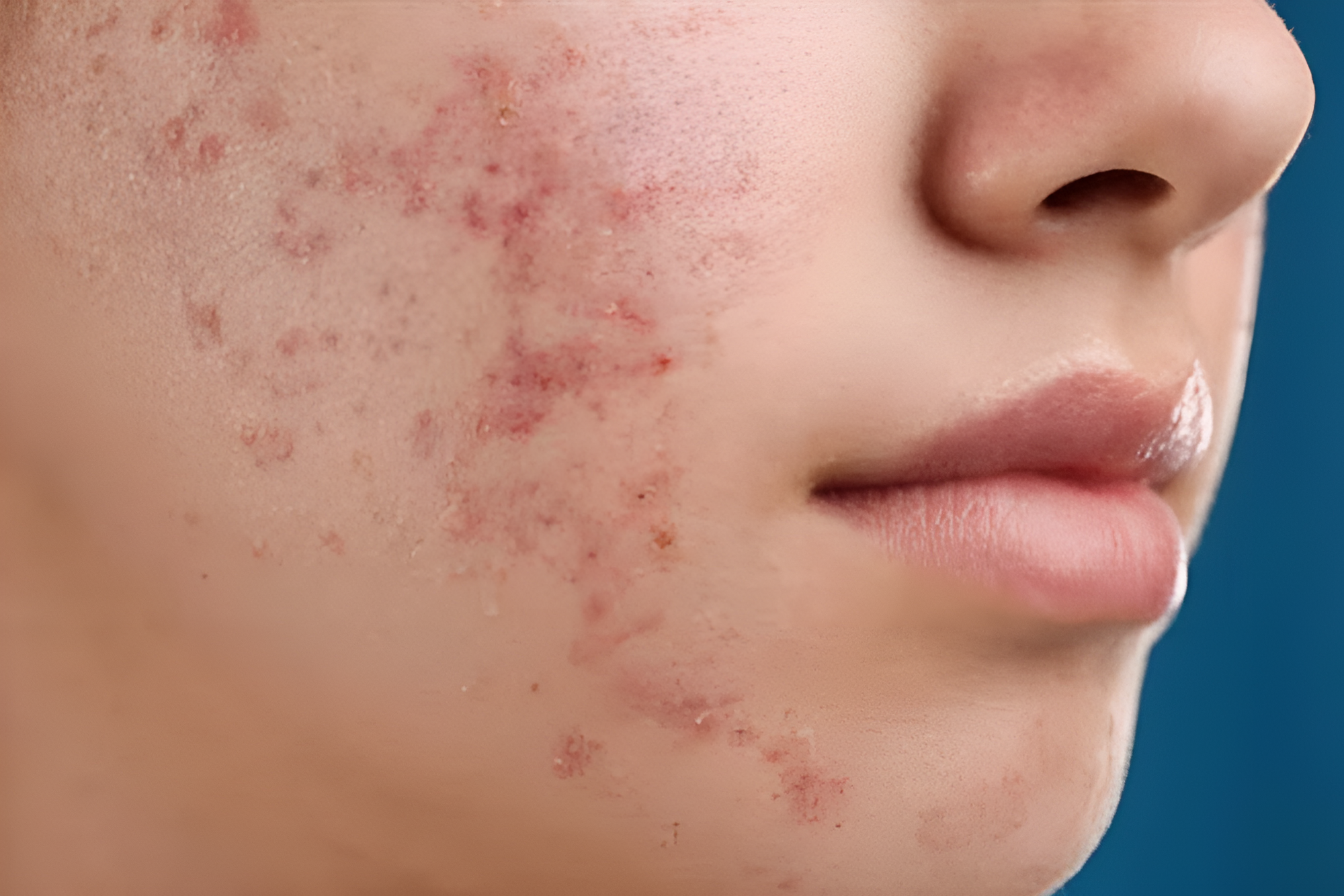Acne affects people of all ages and can be challenging to manage. Besides physical symptoms, it can impact self-esteem and emotional well-being. As a result, individuals often seek effective ways to control their acne.
Clearer skin can be achieved with the right treatments and natural remedies. Don’t let acne hold you back—boost your confidence and enhance your appearance. Explore various treatment options to find what works best for your skin.
Understanding Acne
Acne occurs when hair follicles become clogged with oil, bacteria, and dead skin cells. Depending on the type of acne lesions, you may experience skin inflammation, redness, or pain:
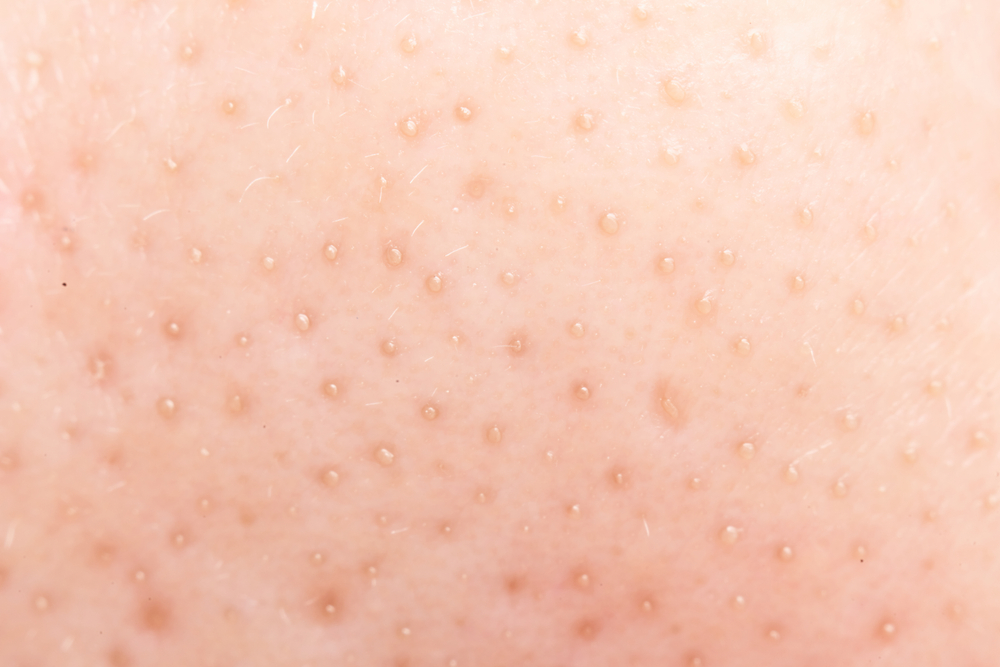
Whiteheads are closed comedones; clogged hair and skin cells prevent the hair follicles from opening.
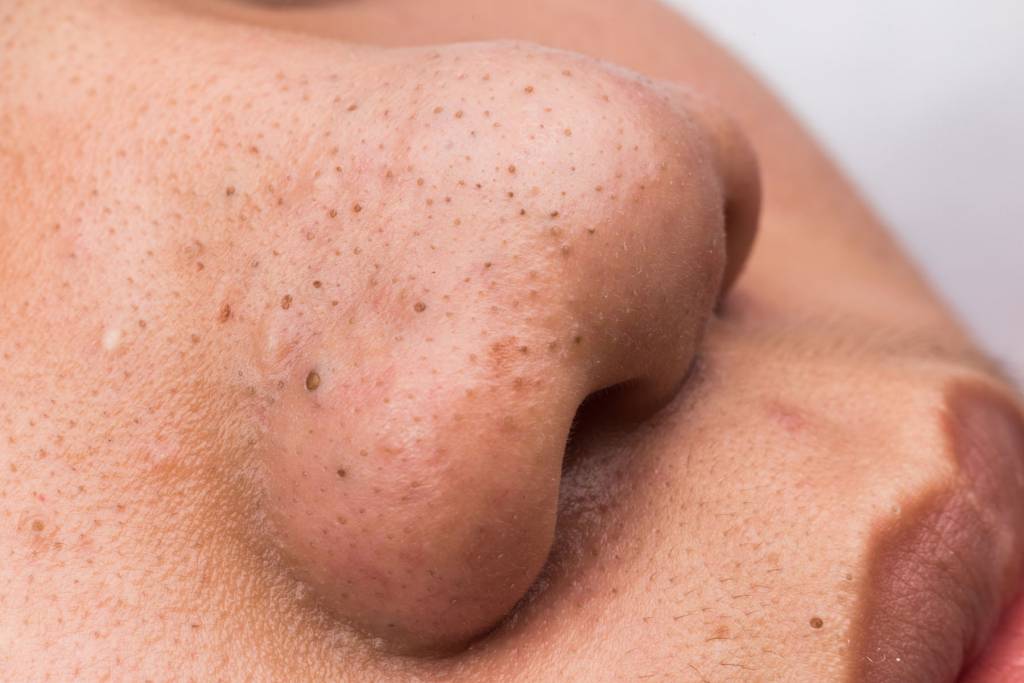
Blackheads are open comedones that contain excess oil and dead skin cells; these turn black when exposed to air.
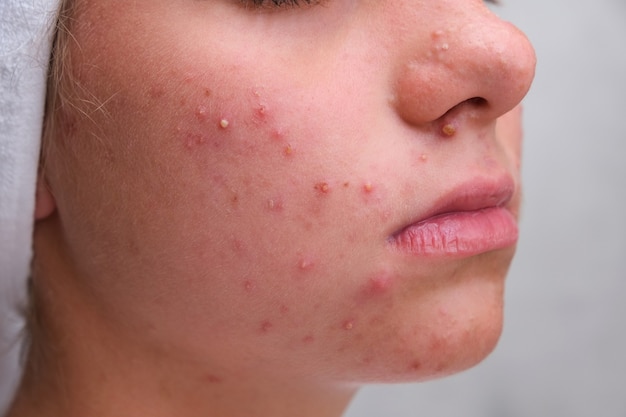
Pimples are inflamed lesions with pus at the tip; sometimes, they can be painful and sensitive to touch.
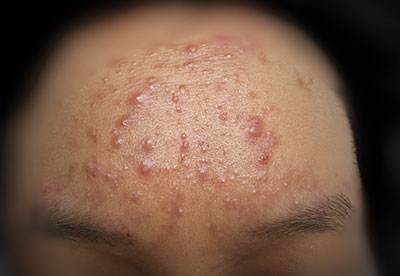
Nodules are large inflamed bumps that develop within the skin and are often painful and firm to touch.
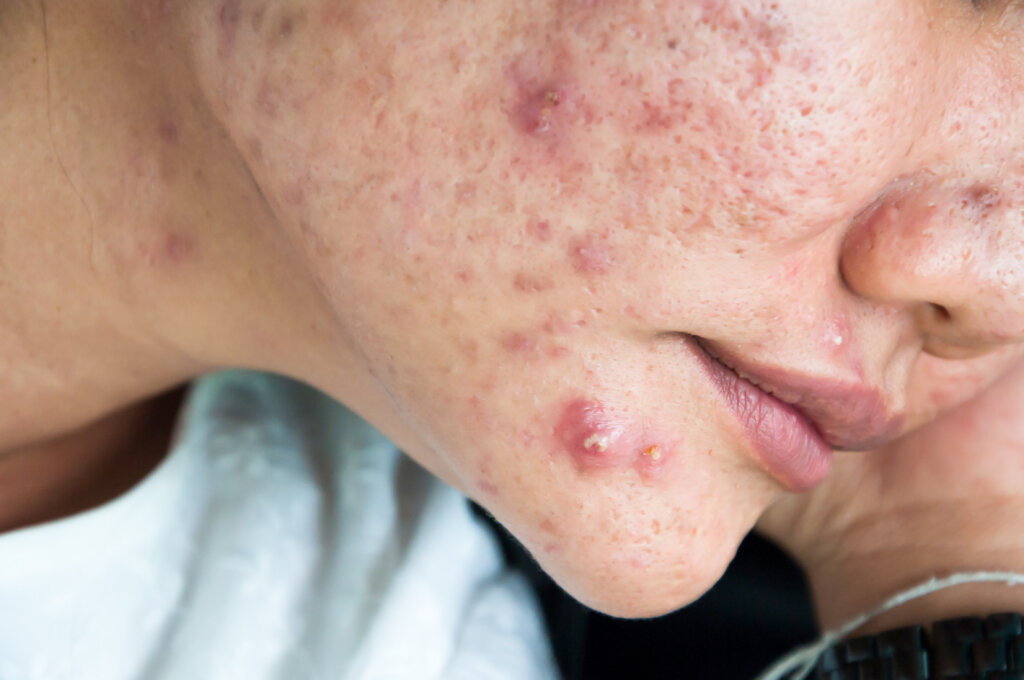
Cysts are large lesions filled with pus resembling boils that develop deep within the skin
Acne arises for various reasons. It commonly occurs during puberty, menstrual cycles, and pregnancy due to hormonal fluctuations. Excess oil (sebum) production by the sebaceous glands and the buildup of dead skin cells that clog pores are the primary causes of acne.
Managing Acne: Treatment Options
When managing acne, several treatment options are available to address symptoms. These include over-the-counter treatments, prescription medications, and natural remedies.
Over-the-Counter Products
Over-the-counter products are typically the first line of defence against mild to moderate acne. They contain active ingredients targeting bacteria, clogged pores, and inflammation.
Benzoyl Peroxide:
Benzoyl peroxide kills acne-causing bacteria, eliminates excess oil, and promotes skin cell turnover to prevent clogged pores. It introduces oxygen to the pores, making it inhospitable for bacteria.
However, it can cause dryness and irritation, especially for sensitive skin. Start with a low concentration and gradually increase it to minimise these effects.
Salicylic Acid:
Salicylic acid exfoliates dead skin cells on the skin’s surface to unclog pores. It is particularly effective in addressing whiteheads and blackheads. However, it may cause dryness or stinging for some individuals, so use it cautiously.
Alpha Hydroxy Acids (AHAs)
AHAs, such as glycolic and lactic acid, gently exfoliate the skin, improving its texture. However, AHAs can increase sun sensitivity, so wearing sunscreen is important when using these products.
Retinol (Vitamin A)
Retinol promotes cell turnover to help reduce acne and also diminishes wrinkles over time.
Sulfur and Resorcinol
Sulfur and resorcinol help reduce inflammation and oil production but may cause dryness or irritation.
To identify any sensitivity or allergic reactions, it’s recommended to do a patch test for any new OTC products on a small area of the face before widespread application. You may also consult a dermatologist for a personalised recommendation on OTC products based on your specific skin type and acne severity.
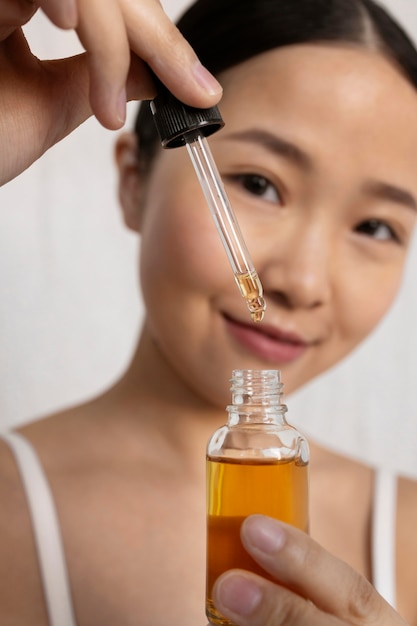
Prescription Medications
For moderate to severe acne, a doctor may prescribe medications such as isotretinoin or antibiotics. These medications target bacterial infections or reduce oil production in the skin. A doctor’s consultation is essential to understand the potential side effects and determine the best course of treatment.
8 Natural Remedies
Natural remedies may offer a gentler approach, but it’s important to consult a doctor before incorporating them, especially if you have sensitive skin. While there is limited scientific evidence to support their effectiveness, these remedies are popular for managing acne due to their natural properties.
Tea Tree Oil
Tea tree oil is widely recognised for its natural antibacterial and anti-inflammatory properties, which may reduce redness, swelling, and help combat acne-causing bacteria. Research suggests it can be as effective as benzoyl peroxide in reducing acne lesions, albeit slower, but with fewer side effects like dryness and irritation. It’s essential to dilute it with a carrier oil, such as jojoba oil, before use to prevent skin irritation.
Aloe Vera

Known for its soothing properties, aloe vera contains compounds such as polysaccharides and gibberellins that promote wound healing and reduce skin inflammation. Its antibacterial action can help prevent acne-causing bacteria from proliferating. Apply it directly to inflamed areas for relief from redness and irritation.
Honey
Honey, especially raw or manuka honey, is celebrated for its natural antibacterial and antiseptic properties, which may help reduce acne when applied topically. Its soothing and healing qualities promote tissue repair and reduce inflammation. It may also hydrate the skin, making it a beneficial component in acne treatment.
Fish Oil
Omega-3 fatty acids, found in fish oil, may help reduce inflammation linked to acne. While some studies suggest that it may be helpful, fish oil supplements can cause side effects such as a fishy aftertaste or digestive discomfort. Including foods rich in omega-3s in your diet, such as salmon and walnuts, may offer a safer alternative for acne management.
Disclaimer: The information provided above does not constitute medical advice. Individuals’ results may vary, so consult a doctor before trying any natural remedies for acne, especially if you have sensitive skin.
Note: Do a patch test in any natural remedy before widespread application to check for sensitivities and possible allergies.
| Treatment Type | Benefits | Side Effects | Accessibility |
|---|---|---|---|
| Over-the-counter Products | – Readily available without prescription – Affordable >br>- It can be effective for mild to moderate acne | – May cause dryness, irritation or sensitivity – Less potent than prescription options | – It can be purchased at drugstores, pharmacies, and retail stores – No need for a doctor’s prescription |
| Prescription Medications | – Stronger, more potent formulations – Tailored to individual needs by a doctor – Effective for moderate to severe acne | – It can cause dryness, redness, peeling and photosensitivity – Oral medications may have additional side effects like headaches, nausea, and dry lips | – Requires a prescription from a doctor – It may be more expensive than OTC options |
| Natural Remedies | – Generally considered safer and gentler – It can provide some relief for mild acne | – Limited scientific evidence on effectiveness – It may cause allergic reactions in some individuals | – Readily available without a prescription – It can be found in health food stores, pharmacies, and online. |
Developing a Skincare Routine
In addition to medications and remedies, a consistent skincare routine can improve acne-prone skin.
Cleansing
Proper cleansing is a crucial first step in any skincare routine. Gently cleanse your face to remove dirt, excess oil, and makeup without stripping the skin’s natural moisture barrier. Avoid harsh soaps, scrubs, and cleansers containing alcohol, as these can dry out the skin, prompting the sebaceous glands to produce more oil, which may lead to further breakouts. Instead, opt for a gentle, non-comedogenic (non-pore-clogging) cleanser to maintain a balanced oil level on your skin. Cleansing twice a day—morning and night—is recommended.
Exfoliation
Exfoliating helps remove dead skin cells that can clog pores and lead to breakouts. However, over-exfoliating can irritate acne-prone skin, worsening inflammation. Dermatologists recommend exfoliating 1-2 times per week with chemical exfoliants like salicylic acid or glycolic acid, as they help unclog pores and promote cell turnover. These acids are gentler and more effective than physical scrubs, which may cause micro-tears in the skin. Start with a low concentration (around 2%) to avoid irritation, and gradually increase the frequency or concentration as your skin builds tolerance.
Spot Treatment
Spot treatments are targeted therapies designed to treat individual breakouts without drying out the rest of your skin. Common spot treatments include benzoyl peroxide and salicylic acid, which reduce inflammation and kill acne-causing bacteria. It’s important to apply spot treatments directly to blemishes rather than all over the face to prevent excessive drying. Some formulations also contain sulfur, which can help dry out surface-level acne lesions.
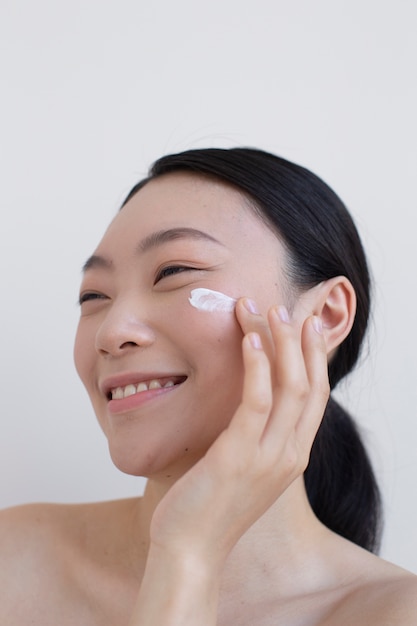
Moisturising
Even oily, acne-prone skin needs moisturisation to maintain its moisture barrier and prevent irritation from acne treatments. Look for lightweight, oil-free, non-comedogenic moisturisers that won’t clog your pores. Moisturisers containing hyaluronic acid can provide hydration without contributing to excess oil, while those with ceramides help restore the skin barrier. Skipping moisturiser can lead to increased oil production, thus worsening acne.
Example of a Skincare Routine
Morning:
- Cleanse with a gentle, non-comedogenic cleanser to remove oil and impurities accumulated overnight.
- Moisturise with a lightweight, oil-free moisturiser that contains SPF 30 or higher. Sun protection is essential to prevent UV damage and pigmentation from acne scars.
Evening:
- Double cleanse by removing makeup and excess oil with a micellar water or oil-based cleanser, followed by a gentle cleanser to thoroughly clean the skin.
- Exfoliate 1-2 times per week using a chemical exfoliant (salicylic or glycolic acid) to prevent clogged pores and promote skin renewal.
- Apply a targeted spot treatment to any active blemishes. Be careful not to overuse spot treatments, as they can dry out the skin.
- Moisturise with an oil-free, non-comedogenic moisturiser to keep skin hydrated and support the healing process.
Lifestyle Changes That May Help Getting Rid Of Acne
Besides maintaining a consistent skincare routine, certain lifestyle changes can complement your efforts to prevent acne from worsening. While these changes may not directly cure acne, they can significantly support skin health and reduce acne flare-ups.
Diet
Although diet alone does not cause acne, certain foods can influence your skin’s behaviour, particularly for those with acne-prone skin.
- Limit High-Glycaemic Foods: Foods like white bread, processed carbs, and sugary snacks can spike blood sugar levels, leading to increased insulin production, which may worsen acne.
- Moderate Dairy Consumption: Some individuals may find that dairy products, particularly skimmed milk, exacerbate acne. Cutting back on dairy could reduce breakouts for some.
- Consume Anti-Inflammatory Foods: Omega-3 fatty acids, found in fish, walnuts, and flaxseeds, are known for their anti-inflammatory properties. These foods may help reduce inflammation associated with acne.
- Stay Hydrated: Drinking plenty of water supports overall skin health by promoting hydration and helping to flush out toxins. Dehydration can lead to dry, flaky skin, which can trigger excess oil production and clog pores.
Stress Management
Stress doesn’t directly cause acne but can significantly worsen it by increasing the skin’s oil production and inflammation levels. Managing stress through healthy coping mechanisms can positively affect your skin.
- Exercise Regularly: Physical activity helps relieve stress and promotes better circulation, helping to unblock pores and remove toxins from the skin. Exercise also boosts endorphins, which naturally reduce stress levels.
- Practice Relaxation Techniques: Meditation, yoga, and deep breathing exercises can help reduce stress hormones like cortisol, which have been linked to acne flare-ups.
- Get Enough Sleep: Aim for 7-9 hours of quality sleep per night. Poor sleep increases stress hormones, which can worsen acne by disrupting the skin’s natural repair process. Adequate sleep is essential for healing and maintaining clear skin.
Hygiene
Maintaining proper hygiene can play a key role in managing acne. While acne is not solely a result of poor hygiene, good habits can help prevent bacteria and oil from clogging pores:
- Wash Your Face Twice a Day: Cleansing your face with a gentle, non-comedogenic cleanser twice daily can remove excess oil, dirt, and makeup, which may contribute to acne if left on the skin.
- Avoid Touching Your Face: Refrain from touching your face throughout the day, as this can transfer bacteria and oil from your hands to your face, potentially triggering breakouts.
- Exfoliate Lightly: Exfoliate 1-2 times per week using a soft washcloth or a chemical exfoliant like salicylic acid to prevent clogged pores. Avoid harsh physical scrubs, as they can irritate acne-prone skin and worsen inflammation.
When to See a Dermatologist
In Singapore, acne affects 88% of adolescents. While mild or moderate acne is manageable with over-the-counter treatments, you should see a dermatologist if you experience the following:
- Severe or Cystic Acne: These types of acne often require prescription-strength medications or treatments to prevent scarring.
- Persistent Breakouts: If your acne doesn’t improve after several months of treatment, a dermatologist can help pinpoint underlying causes and adjust your regimen.
- Acne Scars: Dermatologists offer treatments like laser therapy or chemical peels that can help reduce scarring and improve skin texture.
A dermatologist can identify the main cause of acne and develop a personalised treatment plan. They have access to more powerful and effective acne treatments that were not mentioned above. They can also provide ongoing support and monitoring for your clear skin journey.
The Road to Clear Skin
Your journey to achieving clear skin is a commendable step toward self-care and boosting your confidence. It’s important to recognise that clear skin doesn’t happen overnight—consistent care, patience, and the right treatment approach are essential. Since everyone’s skin reacts differently, staying committed to your routine is crucial, even if results take time.
Consistency is key. Skipping steps in your skincare routine or frequently changing products can disrupt your skin’s balance, leading to further irritation or breakouts. By sticking to a well-planned regimen and giving your skin time to adjust, you’ll allow your skin to respond positively over time.
Celebrate your progress, no matter how minor it seems, to stay committed to your routine and boost motivation.
